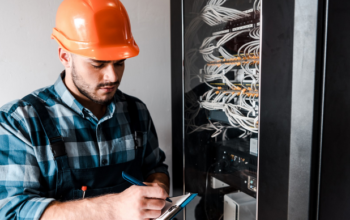Are you tired of sneezing, coughing, and wheezing every time you’re at home? Well, the culprit might be poor indoor air quality. As we spend more time indoors, it’s crucial to ensure that the air we breathe is clean and healthy. Indoor air quality services (IAQ) are here to help! In this article, we’ll discuss the importance of good IAQ, different types of services, factors affecting indoor air quality, and tips to improve it.
The Importance of Indoor Air Quality
A healthy indoor environment is essential for our well-being. Poor IAQ can lead to respiratory problems, allergies, headaches, and other health issues. Maintaining good indoor air quality can help you breathe easier, sleep better, and enhance your overall quality of life.
Types of Indoor Air Quality Services
Mechanical Ventilation
Energy Recovery Ventilation (ERV): ERV systems exchange stale indoor air with fresh outdoor air while recovering energy from the exhausted air. This helps in maintaining a comfortable temperature and humidity level inside your home.
Air Filtration
HEPA Filters: High-efficiency particulate air (HEPA) filters are designed to capture small particles, including pollen, mold spores, and pet dander, ensuring cleaner air inside your home.
Activated Carbon Filters: These filters are designed to remove odors and harmful gases, such as volatile organic compounds (VOCs), from indoor air.
Air Purifiers
Air purifiers use various technologies, like UV light or ionization, to eliminate airborne contaminants like bacteria, viruses, and allergens.
Humidity Control
Maintaining optimal humidity levels (between 30-50%) is essential for good IAQ. Dehumidifiers and humidifiers can help regulate indoor humidity, preventing mold growth and other issues.
Factors Affecting Indoor Air Quality
Numerous factors can affect IAQ, including poor ventilation, high humidity, pollutants from building materials, and outdoor air pollution. Identifying and addressing these factors is crucial for maintaining good IAQ.
Indoor Air Quality Monitoring
Monitoring indoor air quality can help you identify any potential problems and take corrective actions. Some IAQ monitoring devices can detect pollutants, humidity levels, and temperature, providing real-time data for better decision-making.
Indoor Air Quality Maintenance
Cleaning and Maintenance
- Duct Cleaning: Regular duct cleaning can help remove accumulated dust, mold, and other pollutants, ensuring better airflow and cleaner air in your home.
- Preventive Measures: Regularly cleaning and maintaining your HVAC system, replacing air filters, and using air purifiers can help prevent IAQ problems.
Seeking Professional Help
When faced with persistent IAQ issues, it’s best to seek professional help. IAQ experts can assess your home’s air quality, identify potential problems, and recommend the most effective solutions to improve it.
Costs of Indoor Air Quality Services
The cost of IAQ services depends on the type of service required, the size of your home, and the complexity of the problem. Basic services like duct cleaning or air purifier installation can range from $100 to $1,000, while more advanced solutions like installing an ERV system can cost between $2,000 and $7,000.
Tips to Improve Indoor Air Quality
- Ensure proper ventilation by opening windows and using exhaust fans.
- Regularly clean and vacuum your home to reduce dust and allergens.
- Avoid using harsh chemicals and opt for natural cleaning products.
- Keep humidity levels in check by using dehumidifiers or humidifiers.
- Use air purifiers and high-quality air filters.
Conclusion
Improving indoor air quality is essential for your health and well-being. By understanding the importance of IAQ, the various services available, and the factors that affect it, you can make informed decisions about maintaining clean and healthy air in your home. Don’t wait any longer – take action today to breathe easier and live better!
FAQs
What are the common indoor air pollutants?
Common indoor air pollutants include dust, pollen, mold spores, pet dander, volatile organic compounds (VOCs), and radon.
How often should air filters be replaced?
Air filters should be replaced every 30 to 90 days, depending on the filter type, usage, and the presence of pets or allergies.
Can plants improve indoor air quality?
Yes, certain plants can help improve IAQ by absorbing pollutants and releasing oxygen. However, they should be used in conjunction with other IAQ solutions for the best results.
How does outdoor air pollution affect indoor air quality?
Outdoor pollution can infiltrate your home through windows, doors, and HVAC systems, negatively impacting indoor air quality.
Do air purifiers really work?
Yes, air purifiers can effectively remove airborne contaminants, such as allergens, bacteria, and viruses, improving indoor air quality.
Related Posts












